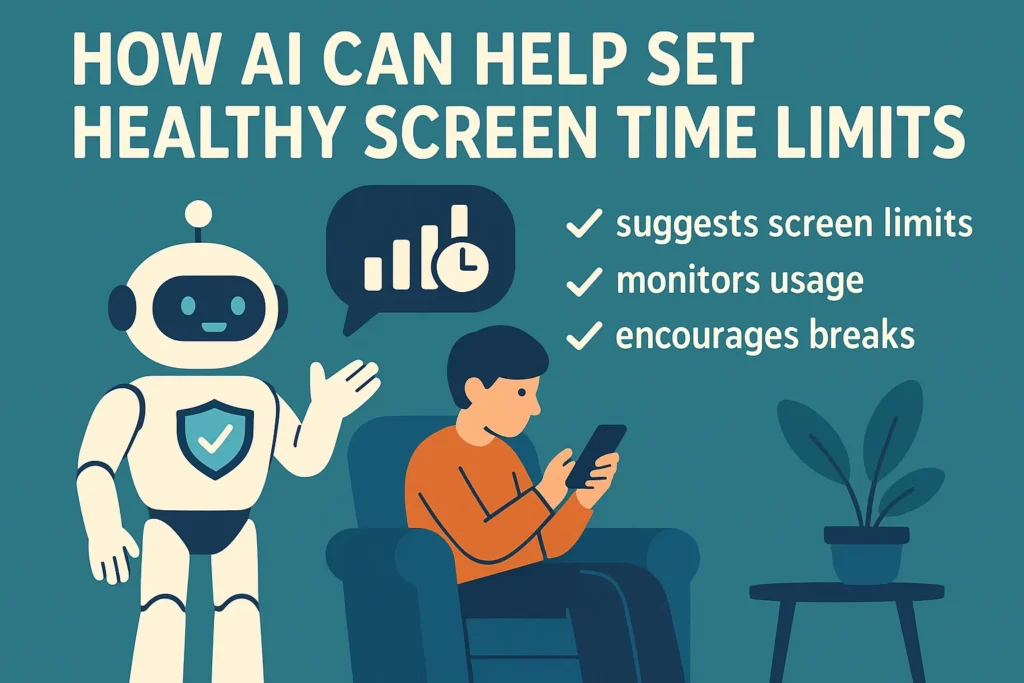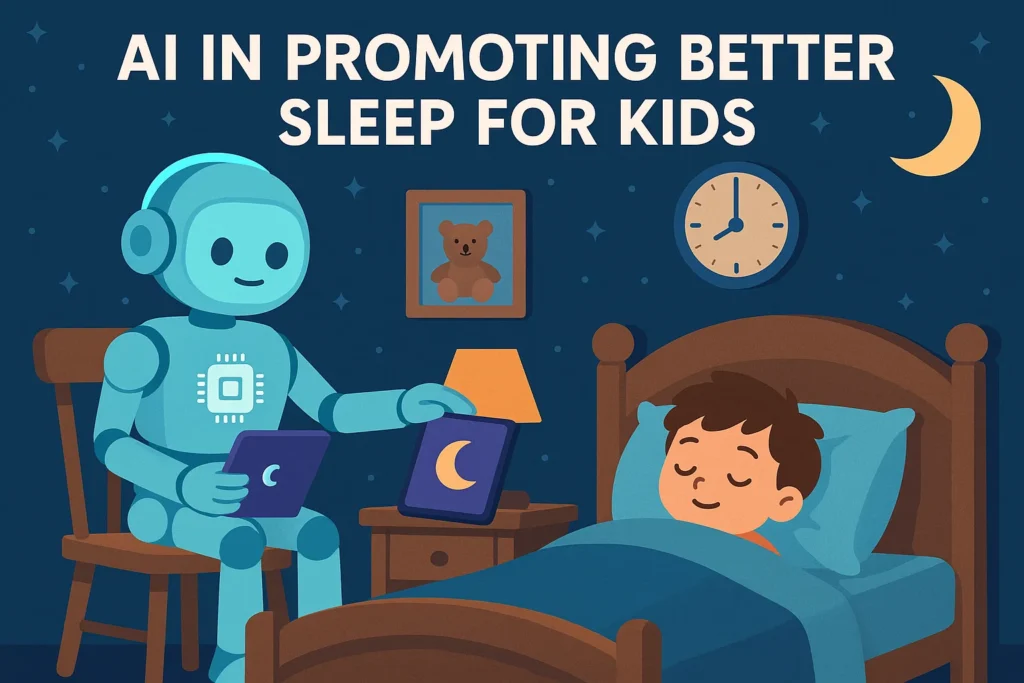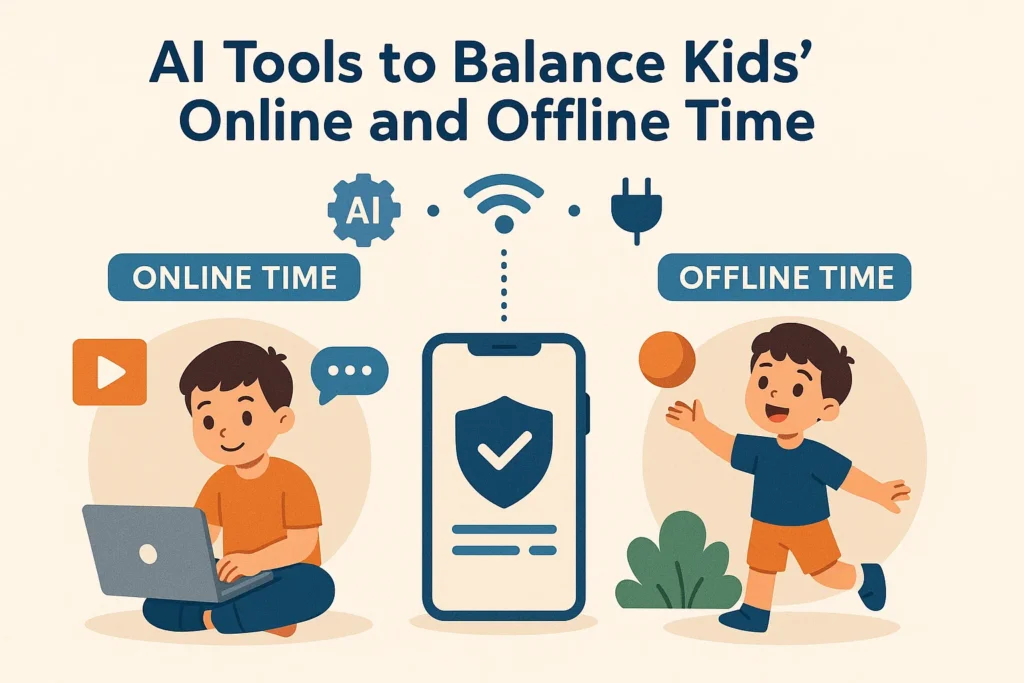📌 Introduction
In today’s digital world, children are spending more hours on screens than ever before. While technology has many benefits, too much usage can affect focus, sleep, and mental health. This is where AI screen time limits come in. At AiBlogQuest.com, we explore how artificial intelligence is being used by parents and educators to set smarter boundaries for screen use, ensuring kids enjoy the benefits of tech without harmful overuse.
✅ 7 Ways AI Screen Time Limits Help Families
-
Personalized Usage Tracking
AI analyzes individual habits and adjusts screen time based on a child’s needs. -
Smart Scheduling
AI tools set daily limits and automatically block apps during study or bedtime. -
Content Prioritization
Educational apps are given more time, while gaming and entertainment are restricted. -
Parental Notifications
Parents get real-time updates when kids exceed healthy screen usage. -
Adaptive Break Reminders
AI encourages breaks with alerts for stretching, eye rest, and hydration. -
Digital Wellness Insights
Reports highlight patterns, helping parents understand and improve digital balance. -
Behavioral Adjustments
AI learns from progress and gradually reduces unhealthy screen habits.
⚖️ Why AI Is Better Than Manual Limits
Unlike traditional parental controls, AI screen time limits adapt dynamically. Instead of rigid cut-offs, AI makes smarter choices—like allowing extra learning time but blocking distractions during school hours.
🚀 The Future of AI in Screen Time Management
As technology evolves, we may see AI-powered wellness assistants integrated into all devices. These tools won’t just track time but also detect emotional states, suggesting offline activities when children seem tired or overstimulated.
🔗 Useful Links – AiBlogQuest.com
-
AI Tools for Monitoring Kids’ Screen Time
-
AI Parental Control Apps: A Complete Guide
❓ FAQ
Q1: Can AI screen time limits replace parental supervision?
No, AI is a support tool. Parents still need to guide and monitor children’s digital use.
Q2: Are AI screen time apps safe?
Yes, when chosen from trusted providers that respect privacy and data security.
Q3: Can AI differentiate between good and bad screen time?
Yes. Many tools allow more time for educational apps while limiting entertainment apps.
Q4: Do AI screen time limits work for teens?
Yes, but they’re most effective when combined with discussions about digital balance.



